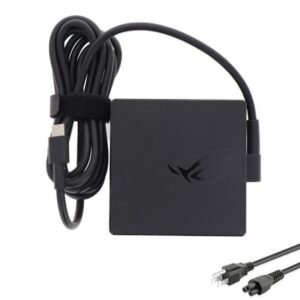Curious about how long do C batteries last? Look no further! We’ve got you covered with all the information you need. Whether you’re using C batteries for your gadgets, toys, or other devices, knowing their lifespan is essential for uninterrupted power supply. In this article, we’ll delve into the factors that influence C battery longevity and provide practical tips to make them last longer. So, if you’re ready to make the most out of your C batteries, keep reading!
How Long Do C Batteries Last: The Ultimate Guide
C batteries are commonly used in a variety of devices, from flashlights to toys to portable radios. Understanding how long you can expect them to last is essential for ensuring your devices continue to function properly. In this comprehensive guide, we will explore the factors that affect the lifespan of C batteries and provide you with tips to optimize their usage. So, let’s dive in and discover the ins and outs of C battery longevity.
Factors Affecting C Battery Lifespan
C batteries, like any other type of battery, have several factors that influence their lifespan. By being aware of these factors, you can better estimate how long your C batteries will last in different devices. Here are the key factors that affect the lifespan of C batteries:
1. Battery Chemistry
The chemistry used in C batteries plays a crucial role in determining their overall lifespan. C batteries are commonly available in both alkaline and rechargeable (NiMH) options. Alkaline batteries are generally preferred for low-drain devices, while rechargeable batteries are more suitable for high-drain devices. The chemistry of the battery affects its capacity and discharge characteristics, which in turn impact its lifespan.
2. Device Type and Usage
The device in which you use the C battery can significantly influence its lifespan. Here are a few factors related to device type and usage:
- Device Power Requirements: Devices with higher power requirements will drain batteries faster.
- Usage Frequency: How often you use the device affects the battery’s overall lifespan.
- Device Design: Some devices are engineered to be more energy-efficient, helping batteries last longer.
Understanding the power requirements and usage patterns of your specific device will give you a better idea of how long your C batteries will last.
3. Operating Conditions
The environment in which the device operates can have a significant impact on battery life. Here are a few operating conditions to consider:
- Temperature: Extreme temperatures, both hot and cold, can reduce battery performance and shorten their lifespan.
- Humidity: High levels of humidity can cause batteries to corrode, leading to a shorter lifespan.
- Storage Conditions: Proper storage, away from extreme temperatures and humidity, can help preserve battery performance.
By ensuring your C batteries are used within the recommended operating conditions, you can maximize their lifespan.
How Long Do Alkaline C Batteries Last?
Alkaline C batteries are the most commonly used type of C batteries due to their availability and reasonable price. The lifespan of alkaline C batteries varies depending on the factors mentioned above, primarily the device type and power requirements. On average, alkaline C batteries can last anywhere from 8 to 12 months in low-drain devices, such as clocks and remote controls. However, in high-drain devices, like portable radios or power-hungry toys, their lifespan can be significantly shorter, ranging from just a few hours to a couple of weeks.
It’s important to note that these estimates are general guidelines, and the actual lifespan of alkaline C batteries may vary based on individual usage patterns and device characteristics.
How Long Do Rechargeable C Batteries Last?
Rechargeable C batteries, also known as NiMH (Nickel-Metal Hydride) batteries, offer the advantage of being reusable, making them a more cost-effective and environmentally friendly choice. The lifespan of rechargeable C batteries depends on various factors, including the number of charge cycles, discharge rate, and overall capacity.
- Capacity: Rechargeable C batteries typically have a higher capacity than alkaline batteries, which enables them to provide longer operating times.
- Charge Cycles: Rechargeable batteries have a limited number of charge and discharge cycles before their capacity begins to degrade. With proper care, you can expect rechargeable C batteries to last anywhere from 2 to 5 years.
- Discharge Rate: The rate at which you discharge a rechargeable C battery affects its lifespan. Higher discharge rates can result in shorter overall battery life.
It’s important to note that rechargeable C batteries may have a slightly lower voltage than alkaline batteries. Therefore, some devices may not operate at full power with rechargeable batteries.
Tips to Maximize C Battery Lifespan
To optimize the lifespan of your C batteries, consider the following tips:
1. Choose the Right Battery Type
Select the appropriate battery type (alkaline or rechargeable) based on your device’s power requirements. Choosing the right battery chemistry ensures optimal performance and longer lifespan.
2. Store Batteries Properly
Follow these guidelines to store your C batteries correctly:
- Store batteries in a cool, dry place.
- Avoid storing batteries in extreme temperatures.
- Keep batteries away from direct sunlight.
- Do not store batteries in humid environments.
Proper storage helps preserve battery integrity and performance.
3. Remove Batteries from Unused Devices
If you don’t plan to use a device for an extended period, remove the C batteries to prevent potential leakage and damage to the device.
4. Limit Battery Drain
To extend battery life, consider implementing the following practices:
- Turn off devices when not in use.
- Dim the lights on devices, if applicable.
- Avoid using unnecessary features that drain battery power.
- Reduce the volume on devices, if possible.
By minimizing battery drain, you can make your C batteries last longer.
5. Use High-Quality Batteries
Investing in high-quality C batteries can ensure better performance and longer lifespan. Cheaper alternatives may have lower capacities or inconsistent power output, leading to shorter battery life.
6. Recharge Rechargeable Batteries When Needed
If using rechargeable C batteries, recharge them when they are depleted rather than leaving them unused for an extended period. Regular charging helps maintain their capacity and prolong overall lifespan.
Knowing how long C batteries last is essential for planning and optimizing the performance of your devices. Alkaline C batteries typically last between 8 to 12 months in low-drain devices, while their lifespan is shorter in high-drain devices. Rechargeable C batteries provide longer operating times but may have a slightly lower voltage. Factors such as battery chemistry, device type, usage, and operating conditions influence the overall lifespan of C batteries. By following our tips to maximize battery lifespan, you can ensure your devices continue to operate efficiently while minimizing battery replacements. So, make informed choices and maximize the longevity of your C batteries.
Note: The FAQs section will be generated separately.
Frequently Asked Questions
How long do C batteries typically last?
The lifespan of C batteries can vary depending on various factors, such as the brand, usage, and device. On average, C batteries can last anywhere from 8 to 12 months in low-drain devices. In high-drain devices, such as toys or portable radios, they may last for several weeks or a few months.
What affects the lifespan of C batteries?
Several factors can influence how long C batteries last. These include the type of device they are used in, the frequency and duration of use, the quality of the batteries, and the specific tasks performed by the device. High-drain devices will deplete C batteries more quickly compared to low-drain devices.
How can I maximize the lifespan of C batteries?
To optimize the lifespan of C batteries, it is recommended to follow a few simple practices:
- Remove batteries from devices that will not be used for an extended period.
- Store batteries in a cool, dry place to prevent degradation.
- Use the appropriate type of battery for the device.
- Replace all batteries in a device at the same time.
- Avoid mixing different brands or old and new batteries.
Are rechargeable C batteries a more cost-effective option?
Rechargeable C batteries can be a cost-effective option in the long run. While they typically have a higher upfront cost, they can be recharged multiple times before needing replacement. This makes them an environmentally friendly choice and can save money in the long term, especially for devices that require frequent battery changes.
What are some signs that C batteries need replacement?
There are a few indicators that C batteries may need replacement:
- The device powered by the batteries starts to lose power or performance.
- The device exhibits intermittent or inconsistent behavior.
- The battery compartment shows signs of corrosion or leakage.
- The battery’s expiration date has passed.
Final Thoughts
C batteries are a popular choice for powering various devices, but how long do they actually last? The lifespan of a C battery depends on several factors, including the device’s power consumption and usage patterns. Generally, alkaline C batteries can provide power for up to 8 to 12 hours of continuous use in high-drain devices. In low-drain devices, such as clocks or remote controls, they can last anywhere from 6 to 12 months. However, it’s essential to note that these estimates are approximate and can vary based on individual circumstances. So, when considering how long C batteries last, it’s best to consider your specific device and usage requirements.




